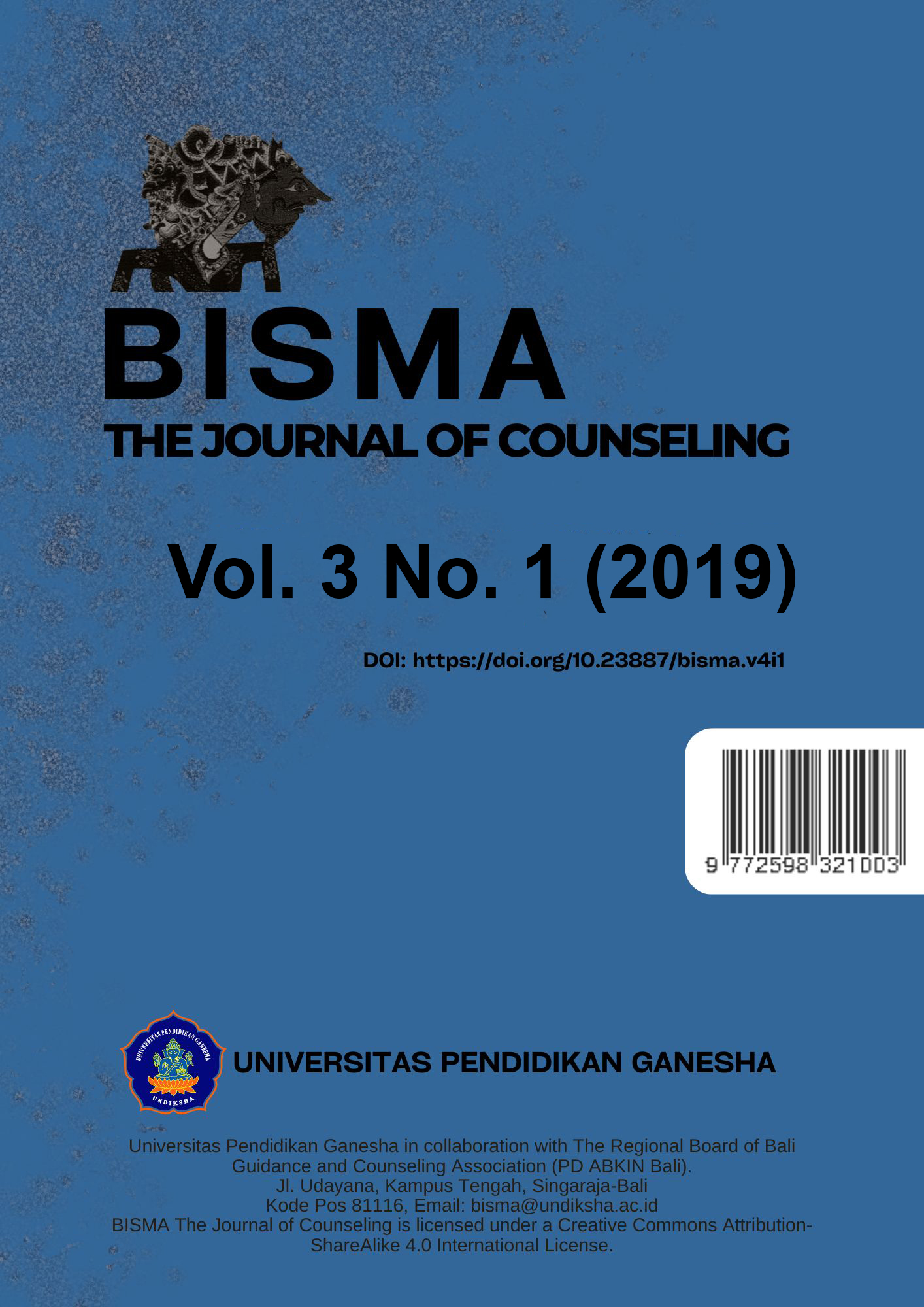Application of Modeling and Aversi Technique to Develop Self-Achievement Students of Vocational Schools
DOI:
https://doi.org/10.23887/bisma.v3i1.17935Keywords:
Self Achievement, Behavioral Counseling, Modeling Technique, Aversion TechniqueAbstract
The purpose of this study: The influence of behavioral counseling models on modeling techniques and aversion techniques on self-improvement in students of TI Bali Global Vocational School Denpasar. This research is an experimental research with pre-test / post-test control group design and design Anava A. The population is all students of class X at Vocational High School Bali Global Denpasar. The sampling technique is random class so that the number of samples is 103 students. Data collection techniques are observation, interview, questionnaire and document recording. The data analysis technique is Anava A and t-test formula Turkey This result is proven by the value of Fcount obtained at 47.297 and Ftable of 4.00. When compared to the value of Fcount with Ftable, it is obtained that Fcount> Ftable with a significance level (p)> 0.05 which states that "there is a difference in the effectiveness of counseling behavior between modeling techniques and aversion techniques..Downloads
Published
2019-09-03
Issue
Section
Articles









